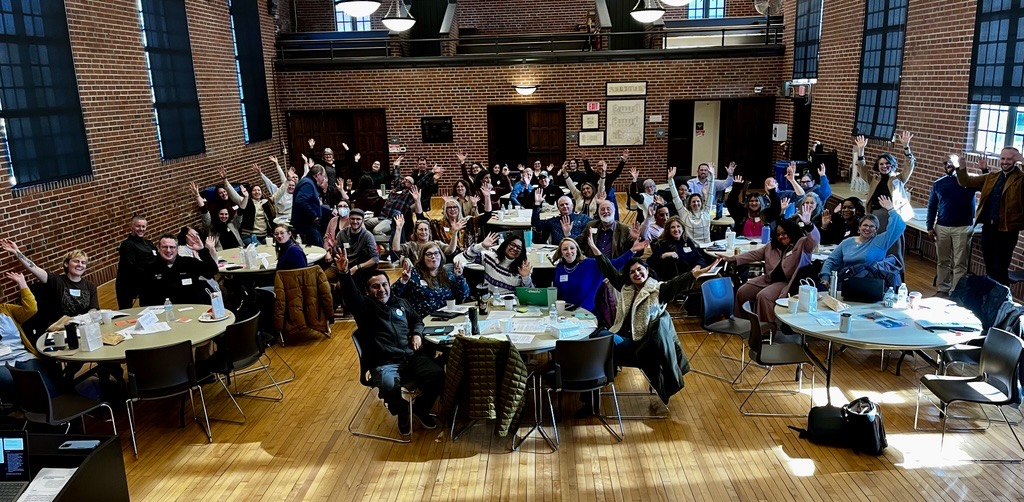When it comes to improving the health and wellbeing of all people in Western North Carolina (WNC), expanding access to broadband is a necessary part of the work. Having reliable internet and the skills to use it are critical for every aspect of our lives – from accessing health care and landing a job to paying bills and learning new skills. Reliable internet is even more crucial in rural areas, connecting residents to vital services and helping people build businesses that serve their local community and beyond.
Across the region and the country, the need is great. One in five households nationally – nearly 80,000 in WNC – lack broadband internet, and many more people lack the skills needed to use the internet effectively. Last fall, the destructive force of Hurricane Helene exacerbated these realities in WNC and underscored how quickly communities without reliable digital access can become isolated.
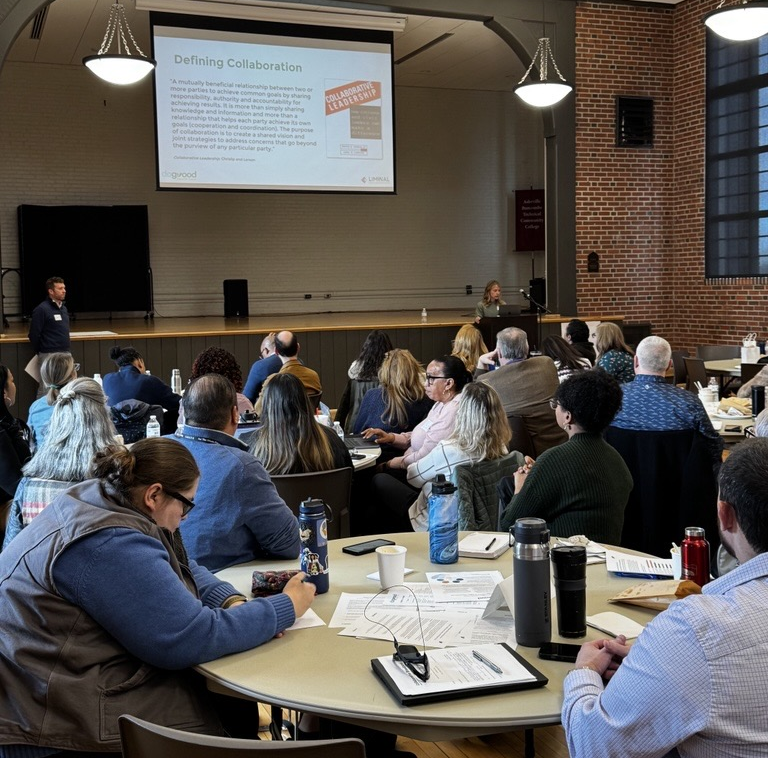
Dogwood Health Trust launched a Digital Opportunities Initiative earlier this year to help make the internet available, affordable and useful for everyone in WNC. Ten collaboratives comprised of more than 50 organizations of all shapes and sizes are working to break down barriers like cost, access to devices and digital literacy.
Collaboration is key. This work cannot be done alone. The initiative is built on community partnerships that engage residents, share information, and create homegrown solutions to bring internet service and skills across WNC. This focus on collaboration is building lasting partnerships and community leadership for not only broadband but other opportunities for improving people’s lives.
Here are three examples of the work happening in the region:
Breaking down barriers for our rural neighbors
The Avery, Mitchell, Yancey Counties (AMY) Collaborative covers a sprawling three-county area of 50,000 residents, including the community crossroad of Buladean where the surrounding steep peaks and valleys create significant challenges with broadband signals. Which is why Jennifer Sword, the digital literacy librarian at the Toe River Valley Regional Library system, is determined to develop a fully wired business center at the Buladean Community Center.
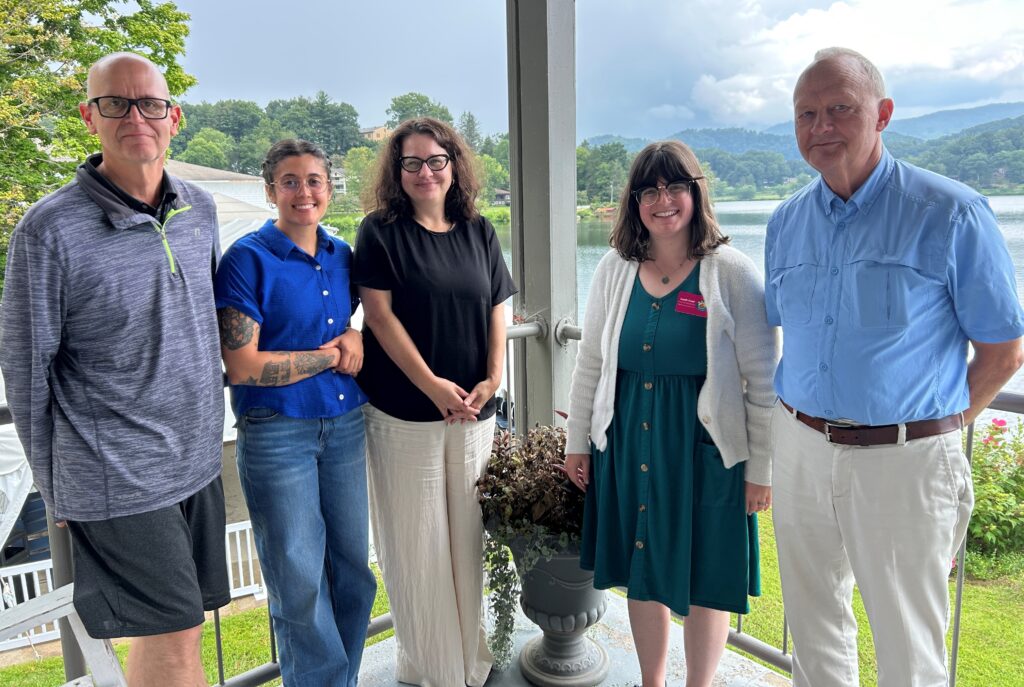
With Dogwood’s support, Jennifer and the AMY Collaborative are working with the community center to create a fully operational business center with an internet-accessible computer lab. The lab will help residents build their computer skills and apply for jobs online. The High Country Council of Governments, one of the AMY Collaborative partners, first gave devices to the community center and now also provides digital literacy training.
“In rural areas like Buladean, our community center is a meeting place where people can learn new skills, use the internet and apply for employment,” said Sword. “We’re working together to create a welcoming environment that’s not just for a community; it’s for our friends and families. This is about providing them access to everything in our region and beyond.”
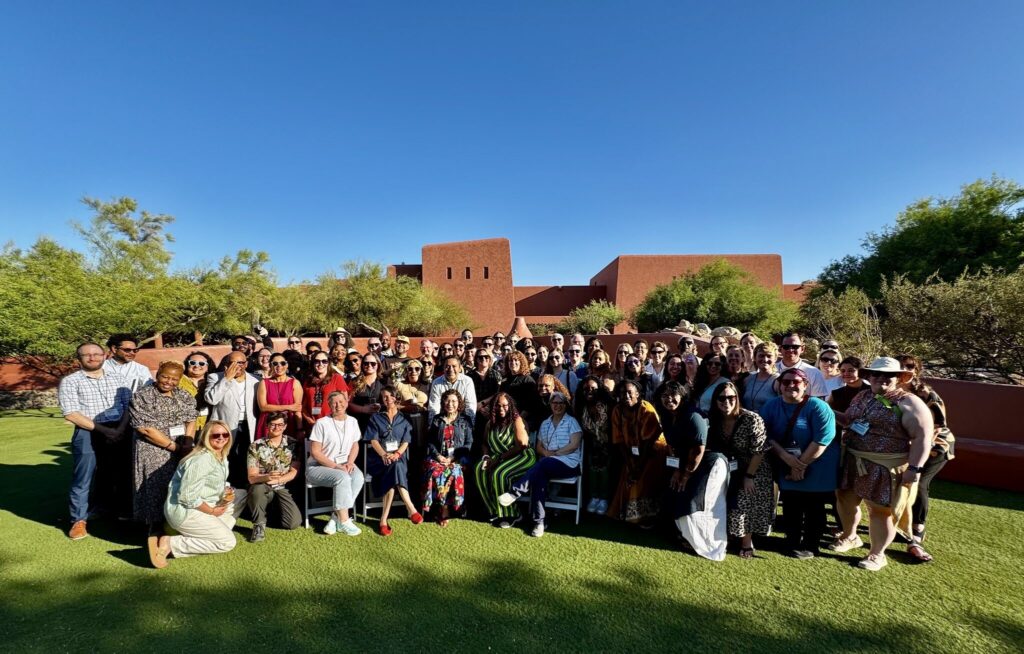
Developing a new generation of leaders
Sara Nichols, the energy and economic development manager for Land of Sky (LOS) Regional Council, shares that Dogwood’s investment in digital opportunities is critically needed.
The Buncombe County Collaborative, which is part of the LOS network, recently sent staffers to the National Digital Inclusion Alliance conference in Phoenix, Arizona, as did all Digital Opportunities Initiative collaboratives. The goal was to immerse teams, many of whom are new to digital work, in a learning environment where they can connect with leaders and experts and bring their learnings back to benefit the community. While at the conference, collaborative members were able to build their knowledge base, grow their peer networks, and begin to position themselves as future leaders in technology.

“We need our staff to be fully connected to the digital world, being in those spaces and absorbing that energy,” said Nichols. “Thanks to this opportunity, the team came home ready to make the case to government officials, nonprofit leaders and business owners about the changes we need to see here in Western North Carolina.”
Nichols added that the Buncombe County Collaborative is eager to develop sustainable solutions and educate lawmakers about ways to reduce the impact of federal funding cuts.
Working across sectors to build local solutions
Members of the Mountain Roots Collaborative know all about the power of collaborating. Together, four organizations have joined to invest initial funding in support of the community’s digital needs.
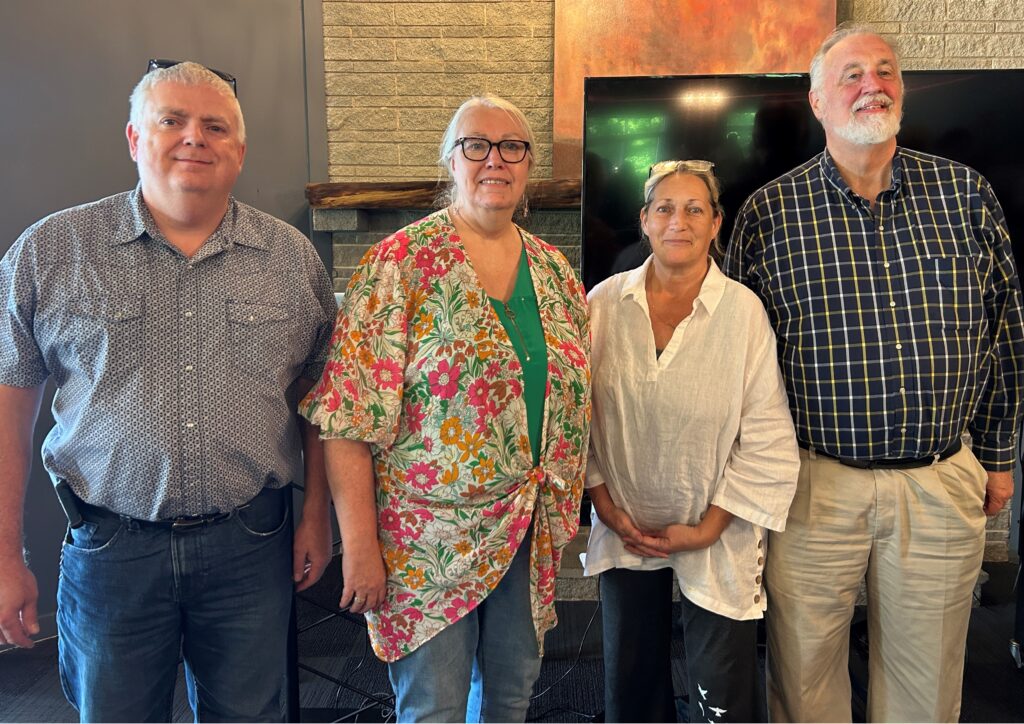
“At Mountain Roots, collaboration is the foundation of all we do. Bringing together partners from local government, nonprofits, education and faith-based organizations allows us to create a united front to close the digital divide in Graham County,” said Kevin Brown, Digital Navigator at Five Points Center. “Our partners contribute unique skills, resources and perspectives, allowing us to respond to real community needs with flexibility and innovation.”

For example, Pastor Eric Reece of UMC Robbinsville has purchased hotspots for Graham County Public Schools, home to more than 1,000 students. The new hotspots allow students to access the internet from home, helping to improve grades and school performance.
Brown noted that the group’s collective effort is empowering seniors, students and underserved residents through digital access, devices and skills, proving that sustainable change begins by working together.
Each of the 10 Digital Opportunities collaboratives will continue their work in 2026, implementing a community-driven plan for their work. Everyone involved in this work, including our team at Dogwood, is committed to learning from each other and working together on shared solutions that keep us better connected today to benefit generations to come.

